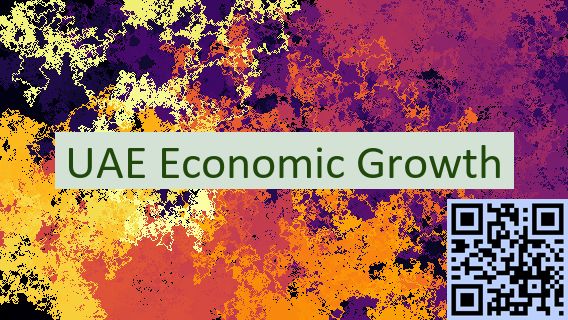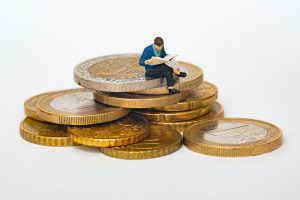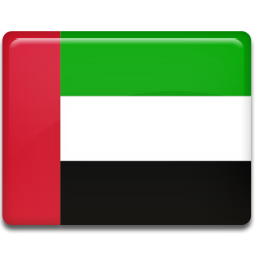UAE Economic Growth
The United Arab Emirates (UAE) has established itself as a dominant force in the global economy over the last few decades. The country has seen rapid economic growth in recent years, driven by its diversified economy, which is based on a strategic mix of oil and gas, finance, industry, and services.

The UAE is now one of the most advanced economies in the Middle East and North Africa (MENA) region and is the third-largest economy in the Arab World. The country’s economy is heavily reliant on oil, but the government has worked hard to diversify the economy, making it more resilient and less reliant on oil revenue.
The UAE’s economic growth has been driven by strong government policies, an expanding population, a diversified economy, and a strategic position between Europe and Asia. The country has a young, educated population, with a high level of technical expertise and a booming tourism sector.
The UAE’s economic growth has been supported by a range of policy measures. These include liberalization of the economy, investment in infrastructure, foreign investment, privatization, and the promotion of new industries.
In recent years, the UAE has invested heavily in infrastructure and technology. This has allowed the country to develop a strong base for trade, finance, and other services. The country has also adopted a smart-city approach to infrastructure development, which has seen the construction of new roads, railways, and ports.
The UAE’s economy has also been boosted by foreign investment. The country has attracted a range of foreign businesses and investors, including technology firms and global financial institutions. The UAE is also a major player in the real estate market, with many international firms investing in the country’s property market.
The UAE’s economic growth has been supported by strong government policies. These include the introduction of free trade zones, the promotion of foreign investment, and the liberalization of the economy. The UAE has also encouraged the development of small and medium-sized enterprises, creating jobs and stimulating economic activity.

The UAE is also a major player in the global energy market, with the country’s state-owned oil company, Abu Dhabi National Oil Company (ADNOC), being one of the largest oil producers in the world. The country is also the world’s largest exporter of natural gas.
The UAE’s economy has seen a steady increase in GDP over the last decade, from $150 billion in 2009 to $350 billion in 2019. The country’s GDP growth rate is expected to remain strong in the coming years, driven by population growth, investment, and new industries.
The UAE’s economic growth has been supported by a range of factors. These include strong government policies, a diversified economy, a young, educated population, and a strategic position between Europe and Asia. The country has also attracted foreign investment and is a major player in the global energy market. The UAE’s economic growth is expected to remain strong in the coming years, driven by population growth, investment, and new industries.

Finally
The country has seen rapid economic growth in recent years, driven by its diversified economy, which is based on a strategic mix of oil and gas, finance, industry, and services. The UAE is also a major player in the global energy market, with the country’s state-owned oil company, Abu Dhabi National Oil Company (ADNOC), being one of the largest oil producers in the world. The UAE’s economic growth is expected to remain strong in the coming years, driven by population growth, investment, and new industries.
#investing #potent #increase #foreign #long_time #uaes #uae #ball-shaped #old_age #global #investment #country #years #state #year #globalpopulation #economy #emergence #growth #alien #days #population #economic #strong #area #impregnable #extraneous #nation



